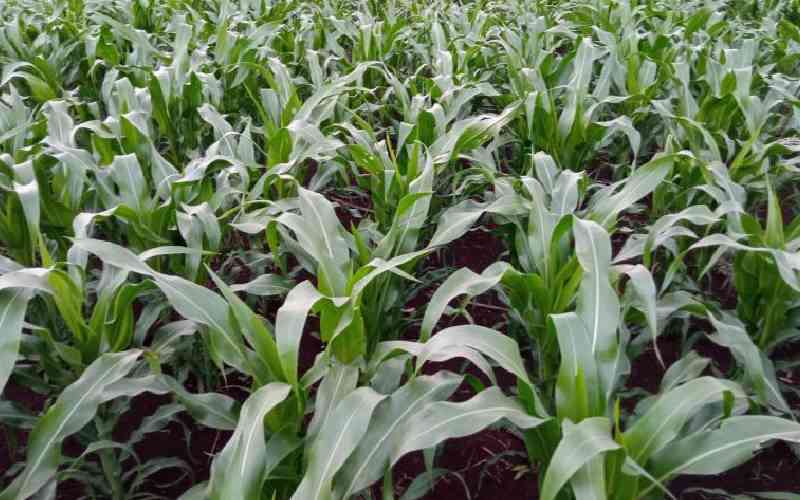
Agriculture is a key driver of the national economy, contributing 33 per cent to the Gross Domestic Product (GDP), and employing over 40 per cent of the population, directly or indirectly. According to the recent Kenya Economic Update Report by the World Bank, the agriculture sector contracted by 1.5 per cent in the first half of 2022, with the sector contributing almost one-fifth of GDP, its poor performance slowed GDP growth by 0.3 per cent.
The main impediment to achieving sustainable food production in Kenya is attributed to lower crop productivity. This is driven by, among others, poor extension systems, low input usage, and climate change since Kenya's agriculture is mainly rainfall-dependent. Further, 80 per cent of the country is considered to be arid and semi-arid, dominated by smallholder farmers, thus less arable land for crop production expansion.